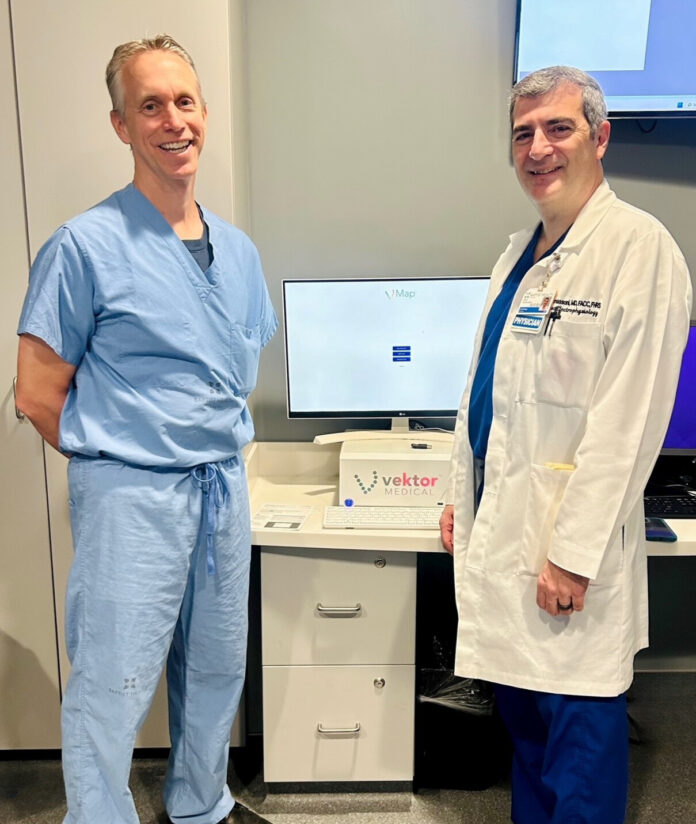
SAN DIEGO — Vektor Medical has announced the enrollment of the first patients in a new clinical trial aimed at improving outcomes for people with persistent and recurrent atrial fibrillation (AF) by using vMap, a non-invasive tool that analyzes standard ECG data to guide ablation procedures.
The study, known as IMPRoVED-AF, is a prospective, randomized, controlled, multi-center trial that will compare traditional pulmonary vein isolation (PVI) ablation to a combination of PVI and targeted ablation guided by vMap. The tool is the first and only FDA-cleared non-invasive arrhythmia mapping system that works with a standard 12-lead ECG.
The trial’s goal is to determine whether using vMap to locate additional arrhythmia drivers—beyond the pulmonary veins—can improve the effectiveness of ablation therapy. Many patients with persistent AF fail to respond to standard treatments because the underlying electrical drivers are difficult to detect.
“Enrolling our first patient is a meaningful step toward improving care for AF patients,” said Dr. Gery Tomassoni, the study’s principal investigator and a cardiac electrophysiologist at Baptist Health Lexington. “By using vMap to identify arrhythmia sources that aren’t located in the pulmonary veins, we can potentially deliver more precise and lasting treatment.”
With the growing need to reduce repeat procedures and improve long-term results, hospitals are increasingly seeking technologies that enhance targeting accuracy without disrupting clinical workflow. vMap aims to meet that need by providing rapid analysis directly from ECG data—avoiding the need for invasive mapping.
“This study isn’t about small changes—it’s about fundamentally changing how we approach complex arrhythmias,” said Rob Krummen, CEO of Vektor Medical. “vMap is helping identify hidden drivers of AF, which could lead to more effective treatment and better outcomes for patients.”
The IMPRoVED-AF trial will include up to 384 patients across approximately 20 electrophysiology centers in the U.S. and Europe. The primary outcome will measure freedom from AF at 12 months post-treatment. The study is being managed by clinical research organization Veranex.

